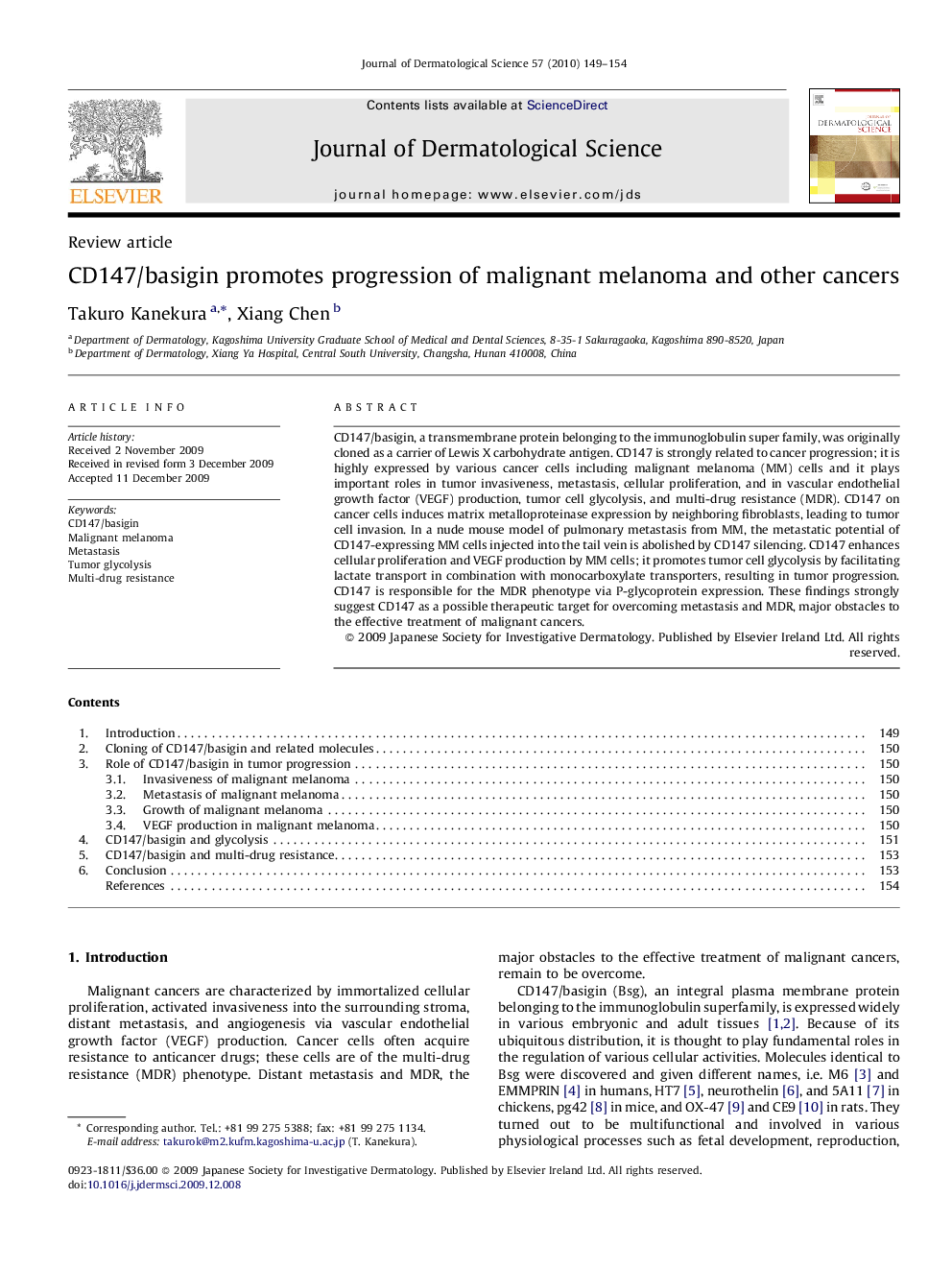| Article ID | Journal | Published Year | Pages | File Type |
|---|---|---|---|---|
| 3213709 | Journal of Dermatological Science | 2010 | 6 Pages |
CD147/basigin, a transmembrane protein belonging to the immunoglobulin super family, was originally cloned as a carrier of Lewis X carbohydrate antigen. CD147 is strongly related to cancer progression; it is highly expressed by various cancer cells including malignant melanoma (MM) cells and it plays important roles in tumor invasiveness, metastasis, cellular proliferation, and in vascular endothelial growth factor (VEGF) production, tumor cell glycolysis, and multi-drug resistance (MDR). CD147 on cancer cells induces matrix metalloproteinase expression by neighboring fibroblasts, leading to tumor cell invasion. In a nude mouse model of pulmonary metastasis from MM, the metastatic potential of CD147-expressing MM cells injected into the tail vein is abolished by CD147 silencing. CD147 enhances cellular proliferation and VEGF production by MM cells; it promotes tumor cell glycolysis by facilitating lactate transport in combination with monocarboxylate transporters, resulting in tumor progression. CD147 is responsible for the MDR phenotype via P-glycoprotein expression. These findings strongly suggest CD147 as a possible therapeutic target for overcoming metastasis and MDR, major obstacles to the effective treatment of malignant cancers.
